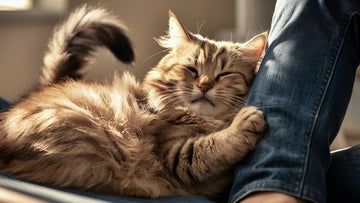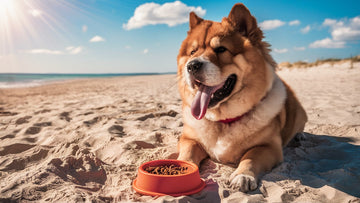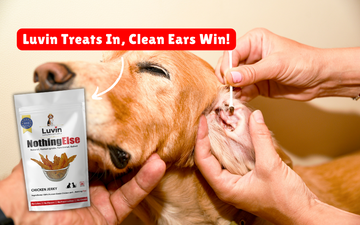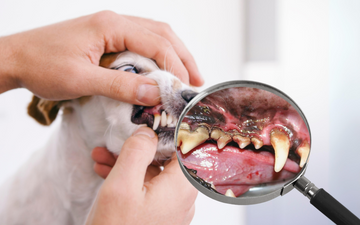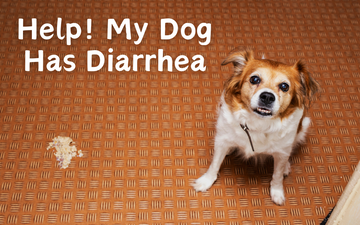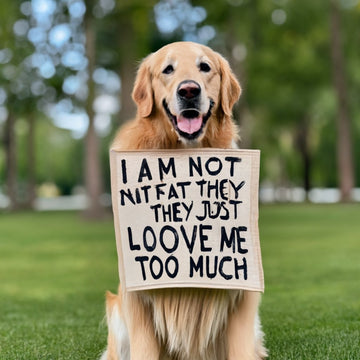
Canine obesity in India is a serious problem, and trust us when we say that is not a small number.
Obesity is a result of positive energy balance due to excess dietary intake and inadequate energy utilisation.
Chonky doggos look super cute, but if you are a concerned pet parent worried about their health, consider this.
Extra weight can lead to a myriad of problems, such as, osteoarthritis, cardiac-respiratory problem, diabetes mellitus, neoplasia, dermatological disease and anesthetic complications.
While, there are predisposed risk factors, such as: Breed (e.g. Labrodor, Golden Retriver, etc are more prone), Sex (females more), Age (more > 8yrs), Sexual status, a study back in 2010 concluded that in 97% of the cases, the reason could be attributed to human specific factors like-diet, exercise and owners attitude.
Shedding those extra kilos has always been a challenging journey even for us, and it's no different for your furry companion. However, your dog now has the best workout partner in you, someone who truly understands the value of losing a few kilos.
Is My Doggo Overweight?
Looks can be deceptive and this is very much true even for your dog, take a good look at your dog and try to assess with your hands also.
1. Is your dog's ribcage easily felt?
2. Is there a visible waistline on your dog when looking at them from above?
3. Is there an upward slope in your dog's abdomen when viewed from the side?
If all the answers to the previous questions are "No," it's a sign that your dog might be obese. This is called the body condition scoring system. But wait, do not jump to any conclusion, schedule a visit to your vet so that they can thoroughly assess your dog and find the reason behind your dog’s weight gain. It could be a complex condition like hypothyroidism or Cushing's syndrome to something as simple as being a bit too generous with treats due to your dog's undeniable cuteness.
If your dog’s weight gain is not related to any condition then their food is the culprit and now you have to help your dog by making necessary changes in their lifestyle and eating habits.
The first step is the smallest
Whenever the subject of weight loss comes into play, our minds often gravitate toward two critical elements: portion control and exercise. Do these same strategies hold true for their health and well-being?
Importance of Complete and Balanced well formulated foods cannot be over-emphasised. Home-cooked meals inadvertently end up being higher on Carbohydrates which eventually gets converted into fat in the body.
Diet plays a very important role in the weight management of dogs, accounting for approximately 60% of the equation. It's crucial to take care of the fat content in their diet because fat contains more calories per gram than protein or carbohydrates. For an adult dog's diet, fats should make up only 14-16% of the total calorie intake.
If your dog's diet is higher in fat, pay special attention to the source of fats. Avoid fats from rendered animal byproducts, as they may lack quality and could contain harmful additives and contaminants. Additionally, those well-intentioned table scraps, especially fatty meat cuts, can introduce unhealthy fats into your dog's diet.
Carbohydrates should not be over 60% in your dog’s diet but many diets breach that level by adding fillers like corn that are rich in calories but offer little nutritional value.
If your dog appears hungry even after receiving their allotted portion of food, it could be due to a diet lacking in adequate fiber. Insufficient fiber content can result in increased appetite and potentially lead to overeating. Ensuring a well-balanced diet with appropriate fiber levels can help manage their hunger more effectively. Select dog food ingredients rich in fiber, such as vegetables (e.g., sweet potatoes, peas, carrots), and fruits (e.g., apples, berries). Fibers can also be of different types but let's take it up some other time.
Have you checked pet food labels for artificial flavorings, colors, and preservatives? These additives can promote overeating and may not be ideal for your dog's health.
Move to improve.
Now, let's talk about the other 40% of the weight loss equation. Many dogs, especially apartment residents, often fall short of their exercise needs based on age and breed. This inactive lifestyle can lead to weight gain. It's essential to prioritize regular physical activity to ensure your dog's health and well-being. Daily walks, playtime, and interactive toys can help keep them active.
While it is advised that you should take your dog out on a walk twice a day for at least 20 minutes, while you are trying to help your dog shed some extra kilos try to prolong their physical activity. Avoid sudden, exhaustive routines that might stop them from enjoying walks. Instead, consider extending your walks or activities by approximately 10-20% to support their weight loss journey while keeping it enjoyable.
What can be other reasons?
Sometimes, you are feeding your dog a well-balanced diet taking them on regular walks, and playing with them but there is just a minor issue they lick and clean their bowl as soon as you fill it, some dogs have a habit of eating quickly, which can lead to them feeling hungry again soon after a meal. This behavior may be due to various factors, including their individual temperament, competition with other pets, or a learned behavior. To address this issue, consider using slow-feed bowls or puzzle feeders to slow down their eating pace.
If you find yourself expressing affection through treats, it could be contributing to your dog's weight gain. It's crucial to regulate treat portions, ideally keeping them under 10% of your dog's daily calorie requirements.
Free feeding is when you allow your pets to eat whenever they want, while it is very convenient for you, it can have a significant impact on a pet's health, often leading to weight gain.
Weight loss is a journey.
This is going to be a long journey that can only be successful if you are consistent and patient. It's essential not to be too strict with your furry friend, or else they will start showing behavioral issues. Before implementing any alterations to their daily routine or diet that may influence their well-being, always consult your veterinarian. They can offer valuable insights and recommendations tailored to your dog's unique needs, ensuring that the weight loss plan is both safe and effective.


